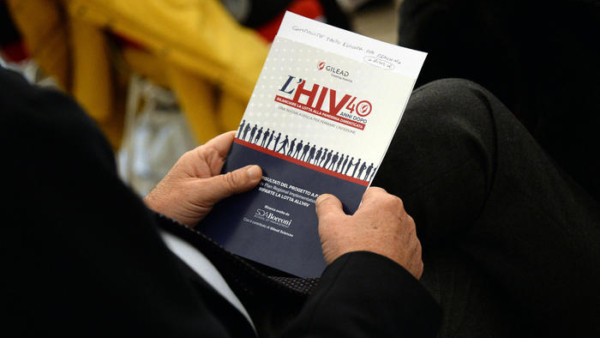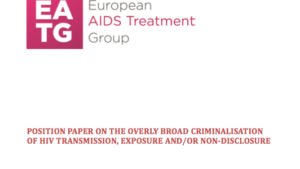Overview
Italy does not have an HIV-specific law, but general criminal laws have been used to prosecute cases of HIV ‘exposure’ and transmission.
There have been at least 16 prosecutions for alleged HIV ‘exposure’ or transmission using laws relating to causing ‘personal injury’ resulting in disease. Article 582 establishes the offence of ‘personal injury’, which under Article 583 can be aggravated to ‘serious’ or ‘very serious’, the latter of which applies where incurable diseases are caused. The maximum penalty under these provisions is twelve years’ imprisonment.
Case law has established that non-disclosure before condomless sex is considered a dolus eventualis (indirect intention), which is a similar standard of culpability as ‘recklessness’ in common law systems. There are no known prosecutions where condoms have been used. Recent jurisprudence has also seen a suppressed viral load preclude liability. In the first case, reported in March 2017, an HIV-positive man who faced a charge of attempted bodily harm based on a presumed risk of HIV transmission (although HIV was not transmitted), was not convicted on account of his low viral load, described as ‘almost equal to zero’ (pressoché pari allo zero), although he was convicted on unrelated charges. In a similar case reported in February 2024, a man was acquitted on account of his viral load being suppressed to the point that the risk of transmission was “essentially nil.”
Importantly, people have been convicted in cases where there was no transmission, demonstrating that perceived ‘exposure’ is also prosecutable in Italy. For instance, in November 2019, an HIV-positive man (originally from Brazil) faced charges of grievous bodily harm related to having condomless sex with two women, with no transmission, and for allegedly transmitting HIV to another partner.
As well as cases related to causing personal injury, there have been several cases in which individuals have been held liable for the deaths of their partners following HIV transmission. In fact, Italy is believed to be the first country in the world to find someone living with HIV guilty of murder for HIV transmission, when an Italian man was found guilty of culpable homicide in 2000, and sentenced to 14 years in prison for transmitting HIV to his wife, who subsequently died.
The first known case involved imprisonment of an HIV-positive female sex worker in 1999. In that same year, a man was imprisoned for four years for infecting his partner. Between 2000 and 2007, there were at least eight more reported cases of people charged with serious personal injury offences for HIV ‘exposure’ or transmission. Sentences generally ranged from four to eight years (with one accused also fined €250,000) except for two cases, the 2000 case described above, and a case involving an HIV-positive Catholic Navy chaplain accused of using his position to coerce numerous men into sexual acts without disclosing his HIV status. His plea agreement, which included admitting all charges, resulted in a twelve-year sentence with 10 years suspended.
In a notorious case, in October 2017, an HIV-positive Italian man was sentenced to 24 years in prison after allegedly transmitting HIV to 32 people through condomless sex. Police investigations found the male partners of three of the women subsequently contracted HIV, as did a child of one of the women. The accused was charged with wilful injury and causing an epidemic by spreading a pathogen, which carries a life sentence, but the court rejected the charges, instead finding him guilty of causing grievous and incurable bodily harm. In October 2019, the Court of Cassation reassessed the case. They rejected prosecutors’ attempts to get the charges upgraded to include ‘malice’, and also considered four cases of alleged transmission that had been contested. It is unclear whether detailed phylogenetic analysis or other testing was conducted to ascertain whether any of the woman may have become HIV-positive through other means, noting the defence lawyer is reported as saying the man has a ‘strain’ of HIV that is the most widespread in Europe’. In October 2020, the man was again found guilty of all charges.
In November 2017, a Romanian man was charged with personal injury and attempted personal injury after allegedly transmitting HIV to a former partner and having condomless sex with two other men. The man was on treatment, having explained to his former partner that his drug regimen related to cancer, and also claiming to have an allergy to rubber which prevented his use of condoms. The outcome of the case is not known.
In March 2019, media reported on a troubling case of a man who described himself as ‘negationist’, denying the existence of HIV despite been HIV-positive for more than 10 years. The man, a truck driver, travelled all over Italy for work and was reported as a regular user of dating websites, with allegations he may have had unprotected sex with more than 200 people. The man was found guilty of causing serious injuries and voluntary manslaughter after transmitting HIV to two women, one of whom had died. He was sentenced to 16 years and eight months’ imprisonment.
In October 2021, a man living with HIV was charged with causing ‘very serious injuries’ to his partner after HIV was transmitted to her. The man had allegedly been aware of his status for a decade but neglected to tell his partner prior or during their three-year relationship, which came to an end after the woman noticed his health status in a hospital report. The outcome of the case is not known.
In January 2022, a man was sentenced to 22 years’ imprisonment for voluntary homicide after the death of his partner. The man was living with HIV but did not disclose this to his partner, who later contracted HIV herself and became ill. The woman’s condition was never diagnosed by doctors, three of whom are facing separate charges for this failure to diagnose, causing her to be untreated and to ultimately die. Other former partners who also contracted HIV from the man have come forward.
Laws
Penal Code
Article 582. Personal injury
Anyone who causes personal injury to any person, from which an illness in body or mind results, shall be punished, on complaint by the offended person, by imprisonment of from six months to three years.
However, it shall be prosecuted ex officio if any of the aggravating circumstances provided for in Articles 61(11-octies), 583 and 585 are present, with the exception of those indicated in the first paragraph, number 1), and the second paragraph of Article 577. Proceedings shall also be brought ex officio if the illness lasts for more than twenty days when the offence is committed against a person incapacitated by age or infirmity.
Article 583. Aggravating circumstances
The personal injury is serious and imprisonment from three to seven years shall apply:
(1) if the act results in an illness endangering the life of the offended person, or an illness or incapacity to attend to ordinary occupations for a period exceeding forty days;
(2) if the act results in the permanent impairment of a sense or organ;
(3) if the offended person is a pregnant woman and the act results in the acceleration of childbirth.
The personal injury is very serious, and imprisonment from six to twelve years shall be applied, if the act results in:
(1) an illness that is certainly or probably incurable;
(2) the loss of a sense;
(3) the loss of a limb, or a mutilation that renders the limb useless, or the loss of the use of an organ or the capacity to procreate, or a permanent and serious difficulty of speech;
(4) deformation or permanent disfigurement of the face;
(5) the abortion of the offended person.
Article 585. Aggravating circumstances.
In the cases provided for in Articles 582, 583, 583-bis, 583-quinquies and 584, the punishment shall be increased by between a third and a half, if any of the aggravating circumstances provided for in Article 576 are concurrent, and shall be increased by up to a third, if any of the aggravating circumstances provided for in Article 577 are concurrent, or if the act is committed with weapons or corrosive substances, or by a person in disguise or by several persons together.
Civil Code
Article 2043. Compensation for unlawful acts
Any intentional or negligent act that causes an unjustified injury to another obliges the person who has committed the act to pay damages.
Acknowledgements
Our thanks to Australian law firm Hall & Wilcox for their assistance confirming current relevant legislation.
HIV Justice Network's Positive Destinations
Visit the Italy page on Positive Destinations for information on regulations that restrict entry, stay, and residency based on HIV-positive status, as well as access to HIV treatment for non-nationals.






